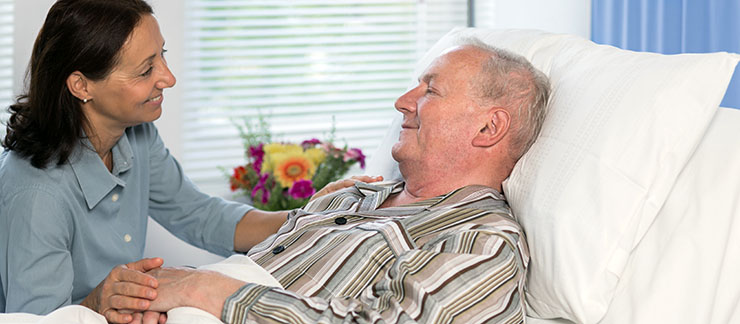
Palliative Care at Home Can Provide Relief for Seniors in Pain
Chronic pain can quickly diminish a senior’s quality of life, making them feel tired, irritable, and isolated. Some seniors believe experiencing pain is a regular aspect of growing older, leading them to keep quiet about symptoms to avoid troubling family and friends.
Pain is not a normal part of aging, and your senior should not have to endure the discomfort. Recognizing signs early and getting the proper treatment can significantly enhance their well-being.
You can help ease chronic pain in your loved one through numerous ways, including palliative care from Visiting Angels. Specialized home care services can provide relief from pain and other symptoms of serious illness. Professional caregivers can be on hand to observe and alert you if your senior experiences any signs of distress or discomfort.
Signs a Senior Might Be in Pain
Chronic conditions—such as arthritis, lupus, fibromyalgia, and bladder or digestive diseases—can be a source of persistent or worsening pain with age. If your loved one tends to hide their feelings or needs, the following signs may appear:
- Body Language
- Avoiding touch or guarding specific body parts
- Decreased activity or appetite
- Grimacing or furrowing their brow
- Groaning or moaning
- Labored breathing while seated or lying down
- Limping or stiffness
- Low energy
- Nausea or vomiting
- Trouble sleeping
- Emotional Changes
- Changing their routine to avoid situations like standing or bathing
- Crying without a known cause
- Increased anxiety, depression, or confusion
- Irritability or restlessness
These symptoms could signal acute discomfort or chronic pain related to a serious health problem. Talk with your loved one’s doctor about symptoms. Delayed care can result in worsening issues and missed diagnoses.
Tips for Talking With Seniors About Pain
Pain can be difficult to discuss, even if your senior is a good communicator. Here are a few tips for talking with your loved one:
- Listen for keywords
Your loved one may use words such as sharp, stabbing, dull, cramping, or tingling to explain their symptoms. Note any triggers, such as certain foods, times of day, or activities. - Ask simple questions
Pain makes it challenging to concentrate. Ask clear questions, like “Does your stomach hurt?” or “Do you get leg cramps at night?” to yield more productive answers. - Show compassion and empathy
Avoid statements that minimize their feelings, such as, “It can’t hurt that much” or “Don’t cry—toughen up.” Be patient and tell them you’re glad they informed you.
Fortunately, many pain management options exist—from medication and lifestyle changes to home-based palliative care services—that don’t have to disrupt your senior’s independence.
How Palliative Care Can Help
Palliative home care services are not the same as hospice care. While hospice services relate to end-of-life care, palliative care focuses on providing comfort—whether from pain or any chronic illness.
Supporting a senior with chronic pain means adjusting daily routines to avoid triggers. Visiting Angels caregivers can help make little changes to improve your senior’s health, safety, and happiness, such as avoiding certain foods or reminding them to take pain medications or attend doctor appointments.
Along with companion care and personal care services, some Visiting Angels locations offer a Certified Palliative Care Program for seniors dealing with chronic pain. The program goes beyond physical assistance by taking a broad, holistic approach that includes the following support:
- Social
Relieving loneliness and isolation through meaningful conversation and companionship - Emotional
Overcoming anxiety and depression to enjoy positivity, a sense of wellness, and purpose - Spiritual
Working with your senior and family to feel peaceful and purposeful during a challenging time.
If your senior loved one experiences chronic pain and needs relief, consider Visiting Angels’ palliative care, designed to provide holistic support beyond physical assistance. Visiting Angels’ compassionate caregivers can make meaningful changes to daily routines, fostering health and happiness for your loved one. Contact us now to start the journey toward a more comfortable and fulfilling life for your senior.


